Broken Academia, Another Case Study: Prof Graham Le Gros
Who is Prof Le Gros? Is his claim to the NZ Covid Inquiry about having no conflicts of interest, true?
One of the main themes of my research writing is exposing how utterly broken academia is. In an article in
for example, I summarise the international strategies used by universities to control the narrative. But it’s also crucial to expose the individuals taking advantage of these mechanisms of control: leveraging them for their own benefit. That could be ego or financial (or both).Academic corruption has been a long time in the making, much longer than even Prof Le Gros’ career. But I’ve discovered how his story is a very typical one. Studying the details of the careers of ‘senior’ academics like the British oncologist, Prof Angus Dalgleish, and in this article NZ immunologist, Prof Graham Le Gros, provides crucial insights into how and why medical ethics has been demolished during the covid era. (A shout out to Lynda Wharton from the Health Forum NZ for encouraging me to get this post written-up!)
Only when we understand what has gone wrong, can we start to rebuild an educational environment with an authentic, values-based intellectual curiosity.

Undoubtedly, during Prof Le Gros’ academic career, there has been ethical academics who have spoken out about potential conflicts of interest, lack of valid ethical considerations, methodological flaws or other concerns. In New Zealand’s toxic work environment, where bullying and harassment are normalised, individuals are often victimised, forced to leave and gagged with legally-binding Non-Disclosure Agreements. This post is also dedicated to their attempts to raise awareness. You are not alone. There will be accountability.
I’ve spoken about this topic in various podcasts, including this one with
. And this one with DocMalik:Closely connected to Prof Le Gros’ career, is my past article (link below), where I show how $billionaire impact investors ‘gamble’ on patents of innovative new treatments, in spin-off companies from academic institutions:
More specifically, in terms of a familiar name in the ‘Freedom Movement’, is the Case Study I wrote (link below) about Prof Angus Dalgleish of University of London, who refuses to admit that his whole career has been spent chasing a delusion about artificially manipulating the human body’s natural immune system with a vaccine - maybe because it doesn’t need to be manipulated?
Academia is Broken: a case study of Prof Angus Dalgleish
Why did Professor Angus Dalgleish have an apparent U-turn about the 'vaccines' and why won't he condemn all jabs? NB This is longer-than-usual post (please click on the title to read the whole thing).
If you’re interested in Dalgleish’s perspective, have a listen to
interviewing him, here.Another example I’ve written about, an academic in ‘mid-career’ - Dr Siouxsie Wiles at the University of Auckland - shows how far these individuals will go to support The Science™ and avoid engaging in dialogue with any educated citizen:
Academia is utterly broken - here's why.
Why engage with ‘anti-vaxxers’? In fact, why respond to anyone at all? After all, its not like you have to be accountable to the public, eh? Answering to Parliament is my Top Priority, right? Joe Public are just ignorant, uneducated conspiracy-theory, far-right extremists. I just want to be allowed to get on with spending time on my social media feed, w…
Gross Conflicts of Interest: Le Gros
So, let’s examine the Case Study of Prof Graham Le Gros, who last week, gave ‘evidence’ (if you can call it that) at the ‘Public Hearings’ for the Royal Commission for the Covid Inquiry ‘Lessons Learned’. There has already been some discussion about his contribution, for instance here. A very articulate untangling of the NZ Government’s manipulation of the language of the Inquiry here. And a recorded reflection about the Hearings from NZDSOS is available here. Le Gros was also Director of the Vaccine Alliance Aotearoa, a propaganda arm of the Gov/Media during covid. But there’s much more to his story than that conflict of interest.
Le Gros’ Background
Born in Blenhiem, NZ, Le Gros’ father was (according to Wikipedia) in the military, based in Singapore. After returning to NZ, Graham completed his PhD in 1987 at the University of Auckland. Unusually, he was then awarded a Fogarty Fellowship at the National Institutes of Health (NIH), US. This meant a move to flashy Washington DC, where amongst other issues, research priorities were new therapies (and vaccines) for AIDS patients.
His role at the John E. Fogarty International Center would have meant Le Gros was involved in the daily coordination of international exchanges between the NIH, the World Health Organization (WHO) and numerous European medical research organizations. Maybe his intellectual curiosity was keen, back then? Maybe he actually READ the scientific articles? Who knows. During that era DNA interventions were debated and the controversial Human Genome Project soon began.
The networks Le Gros made at the NIH inevitably gave him advantages throughout his career, including in the competitive European BigPharma job market. After his education indoctrination by the NIH, Le Gros moved to Switzerland to work for Ciba-Geigy. Le Gros would have been employed when the name was shortened to Ciba in 1992.
Those who know their WW2 history will be familiar with what this company stands for: CIBA Chemische Industrie Basel (Chemical Industries Basel). The firm’s war crimes are well-documented, including the use of slave labour from concentration camps to win contracts for the the Third Reich. And links to the Nazi abuses with experimental chemicals, including the Thalidomide scandal, which coincidentally also has parallels to my previously cited post about the work of Prof Dalgleish.
Le Gros returned to NZ in 1994 to join the Malaghan Inst at the Victoria University of Wellington. Two years later, in 1996, Ciba’s merger with the Swiss company Sandoz formed Novartis AG, one of the world’s largest pharmaceutical companies.
The NZ Royal Commission, Covid Inquiry
For a senior academic, Prof Le Gros’ presentation last week was bemusing. His delivery was embarrassingly shallow, his tone patronising, without any reference to the science. His vocabulary seemed extremely limited, which understandably may explain why he got angry at some points during his questionning. His smirks do little to gain him any respect.
He used simplistic and inappropriate words like ‘funny’ to refer to a dangerous immune response that leads to an adverse reaction after the ‘vaccine’. He also claimed that ‘anti-vaxxers’ look with ‘glee’ upon the adverse events reporting system (?) (Is he a psychopath?) But putting these issues aside, let’s investigate this particular statement he made, referring to his potential conflicts of interest, at 46.25:
I’m not employed by anyone, I’m retired. I’ve not worked, I’m not working for a drug company or not [on] anyone's payroll. Um.. I volunteer work as a trustee of Malaghan Inst of Medical Research. Just to make sure, for anyone, so it's clear before we…he’s working in cahoots with the drug company: I'm not. I never have been.”
Is this correct? Let’s see. First, let’s do a quick search on Companies Register NZ:
We can immediately see that Prof Le Gros is listed against four companies. Avalia Immunotherapies Ltd which is recently in liquidation. But the Internet never forgets! Avalia’s old website proudly announced back in 2015, for example, how staff were presenting at the World Vaccine Conference in Washington DC, “to discuss the challenges and successes that drives future vaccine development for cancer and immunotherapy.” So Le Gros clearly maintained his connections to NIH:

Le Gros ceased his Directorship of Avalia in Oct 2020 before it went broke. But that was AFTER the company led a partnership with Wellington, Victoria University’s Malaghan Inst and benefitted (Sept 2020) from a NZ$10m investment from taxpayers, alongside ‘donations’, as the website details here (screenshot from the WayBack Machine):
The Shareholders of Avalia Immunotherapies Ltd were multiple, including Avalia Nominee Ltd (12.9%) and Malcorp Biodiscoveries Ltd (29.8%). Seems that, despite massive investment, Hamish Findlay of Wellington UniVentures’ ‘expert advice’ (as stated in the above screenshot) about intellectual property and commercialisation, didn’t work out?!
Le Gros is listed as ‘current director’ of two companies: Malcorp Biodiscoveries Ltd and Wellington Zhaotai Therapies Ltd. Perhaps he is a non-salaried director, but remember he still has a duty to the shareholders of the company, which is - you guessed it - the Malaghan Inst of Medical Research, Victoria University of Wellington with over 100 staff.
Other Government funding was also provided to the Malaghan Inst, for instance in 2013 it gained NZ$6.2million. And $5million was ‘invested’ in 2019. But what of the other company Le Gros is listed as Director at? The Wellington Zhaotai Therapies Ltd was a relatively recent appointment, in June 2022:
The Shareholders of Wellington Zhaotai Therapies Ltd are two entities, unsurprisingly Malcorp Biodiscoveries Ltd own 13.5%. But the remaining 85.6% is owned by Chinese biotech Hunan Zhaotai Enterprises Management Ltd which seems to trade as Hunan Zhaotai Medical Group and is based in Changsha, Hunan, China:
Their website is full of dodgy-looking stock photos of multiple high-rise buildings all around China. Very suspicious. And sure enough, on their website there’s Prof Le Gros with his Chinese colleagues:
In the ‘About Us’ section (using Google translate) the company proudly states its current ambitions with new pharmaceuticals for us all
“At present, a production laboratory preparation workshop that meets the requirements of GMP standards has been built, with the capacity for mass production of CAR-T products. It has CAR-T new drug research and development bases in Guangzhou and Changsha, and has submitted CAR-T Class I new drug applications to the China Food and Drug Administration and the New Zealand Ministry of Health.”
The CAR-T products mentioned above are Chimeric Antigen Receptor (CAR) T-cell therapy - a type of ‘immunotherapy’ that uses a patient’s own genetically modified T cells to find and kill cancer. Here’s some more detail. But that analysis is for another day.
For interest’s sake, it’s worth pointing out that this company’s HQ is less than a four hour drive from that infamous Wuhan Laboratory.
Le Gros’ ‘Voluntary’ roles
Now let’s look at NZ Charities Services. Here we can see that Le Gros used to be Trustee of the Cancer Standards Inst. And is currently (as he admitted during the Hearing) a Trustee of the ‘charitable’ arm of The Malaghan Inst of Medical Research.
But there are also three other charities Le Gros is listed under: the Wellington Medical Research Foundation - which trades under Research For Life. And there is another rabbit hole, with strange overseas corporate 'religious' donors and a Post-Doc Fellowship which funds more of Le Gros’ genetic experimental treatments, as well as overseas promotions via conferences. There’s also, a ‘charitable’ arm of that same Chinese-partnered Malcorp Biodiscoveries Ltd:
And it is interesting to note someone else on that same Board of Trustees. From the 11 Dec 2024, none other than our previous Director-General of Health during the covid response, Sir Ashley Bloomfield:
Unsurprisingly, the Malaghan Inst income has a significant balance sheet: its income has tripled over the last ten years to ~$30million and yet their research expenses seem not to have benefitted?
The outgoings recorded on the latest Annual Accounts, report salary expenditure of NZ$11million. It is unclear who is included in this expenditure that includes some funding for ‘close family members of key personnel’:
Close family members of key management personnel could perhaps include Professor at Victoria, Franca Ronchese, who presents at Chinese conferences and happens to be Le Gros’ wife:
Strange that despite Le Gros’s claims of being in a ‘voluntary’ role’, there are 128 employees but ZERO voluntary roles/hours recorded in this years annual accounts of his Institute?
I’ve described previously how NZ Charities Act allows (promotes?) accrual of ‘non-current assets’ as a way of growing investment income that should (IMHO) be spent on their Charitable Purpose. For instance our St John’s Ambulance Service has hundreds of millions in the bank, whilst simultaneously claiming they desperately need donations for new ambulances. And the Malaghan Inst illustrates this argument perfectly in its accumulation of funds, spend on salaries, and yet research expenditure…?
So to recap: Prof Graham Le Gros was perhaps being disingenuous when he claimed to the Covid Inquiry Commissioners and public that:
I’m not employed by anyone, I’m retired. I’ve not worked, I’m not working for a drug company or not [on] anyone's payroll. Um.. I volunteer work as a trustee of Malaghan Inst of Medical Research. Just to make sure, for anyone, so it's clear before we…he’s working in cahoots with the drug company: I'm not. I never have been.”
Clearly his career has meant his employment (probably with generous benefits, including pensions) with ‘drug companies’, their investors and funding partners. His current roles now mean he is working for a drug company, with intent to commercialise new treatments. Whether he is taking a salary is unknown, but that is academic: his role as Director to these commercial pharma companies that have pseudo-charitable arms is well-established. His links to the US NIH, the WHO, Swiss chemical companies and Chinese commercial Biotech is extremely concerning. Not to mention his sitting on a Board of Trustees with at least one senior Government policy-maker, Bloomfield.
But it doesn’t end there.
Upon closer inspection of the 2024 Charities Services Annual Report from the Malaghan Inst, I come across an interesting entry mentioning a new financial ‘loan’ ($665,160) from an intl Biotech investor, BioOra:
BioOra is part of the massive Bridgewest Group - international private equity investors based in the US, India and China. Its portfolio includes finance and commercial property. In fact Radio New Zealand happens to be one of their Auckland tenants, I kid you not:

Their other profitable businesses include developers of multiple medical devices (micro-chips), AI surveillance equipment, Unmanned Aerial Vehicle (UAV) (Drones), Internet of Things (IoT) software, and of course pharmaceuticals:
In fact, UK-educated Mr Massih Tayebi and his brother Masood are founding partners of the Bridgewest Group:
Massih was until recently also CEO of another Bridgewest Group company, BioCina. As well as being partnered with Le Gros’ Malaghan Inst, BioCina is also partnered with the Callaghan Innovation, a NZ Government agency specialising in R&D. How convenient!
BioCina is part of Pfizer’s empire, approved by the US FDA in Adelaide in 2020, as shown on this history of BioCina (image via WayBack machine) updated version here.
No surprises what this company’s current ‘Offerings’ are to market. Yes mRNA injections:
There is an enormous set of industries that rely upon the ‘Safe and Effective’ Big Lie. The propaganda that ‘experts’ like Prof Graham Le Gros repeat in environments like the NZ Covid (fake) Inquiry is essential. From companies like South Pacific Sera Ltd providing the animal tissues, embryos and breeding required, to Bio4t2 Ltd, running the patient recruitment for the clinical trials. BigPharma’s giant network of machinery will keep turning, exploiting innocent people and lying to the public.
It ends when we say NO!
In my view, looking at all these close connections, it is impossible for anyone to argue that Le Gros has anything other than ‘gross’ conflicts of interest.
Finally, I was saddened to read in the Malaghan Inst latest Annual Report of the ‘untimely death’ in 2023 of one of their long-standing trustees, John Beattie. One has to wonder…?
Thank you for all your support! You can also Buy me a Coffee so I can Pay it Forward!



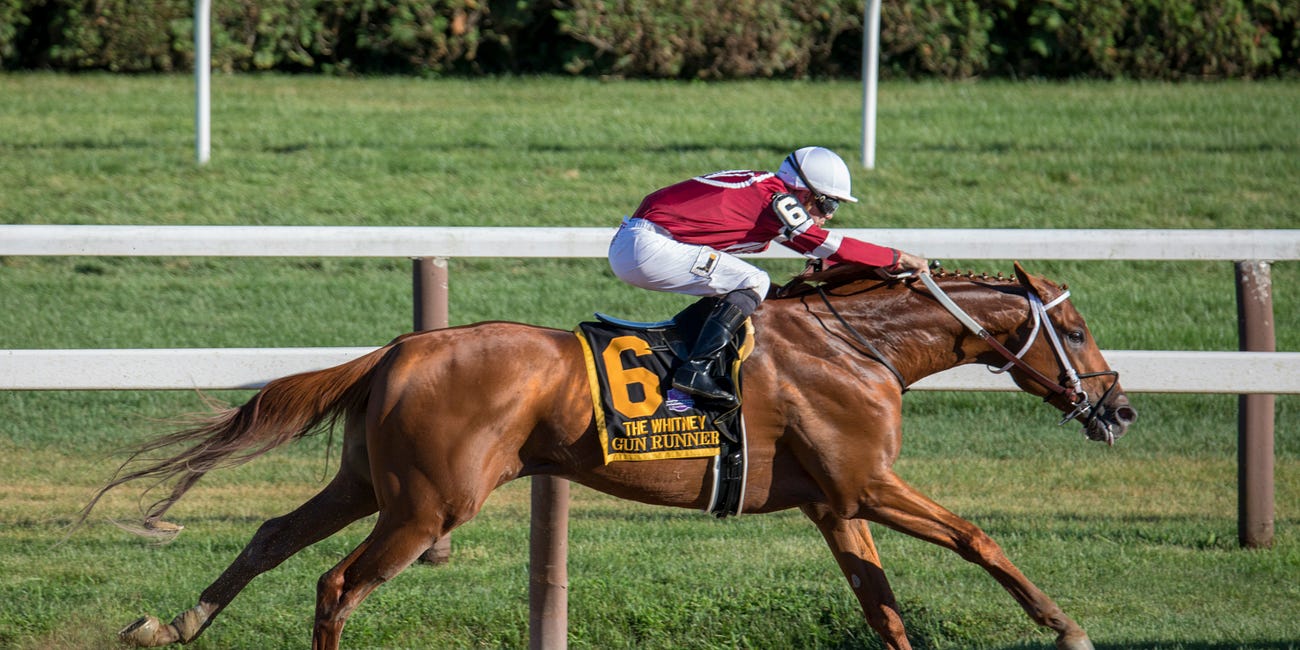






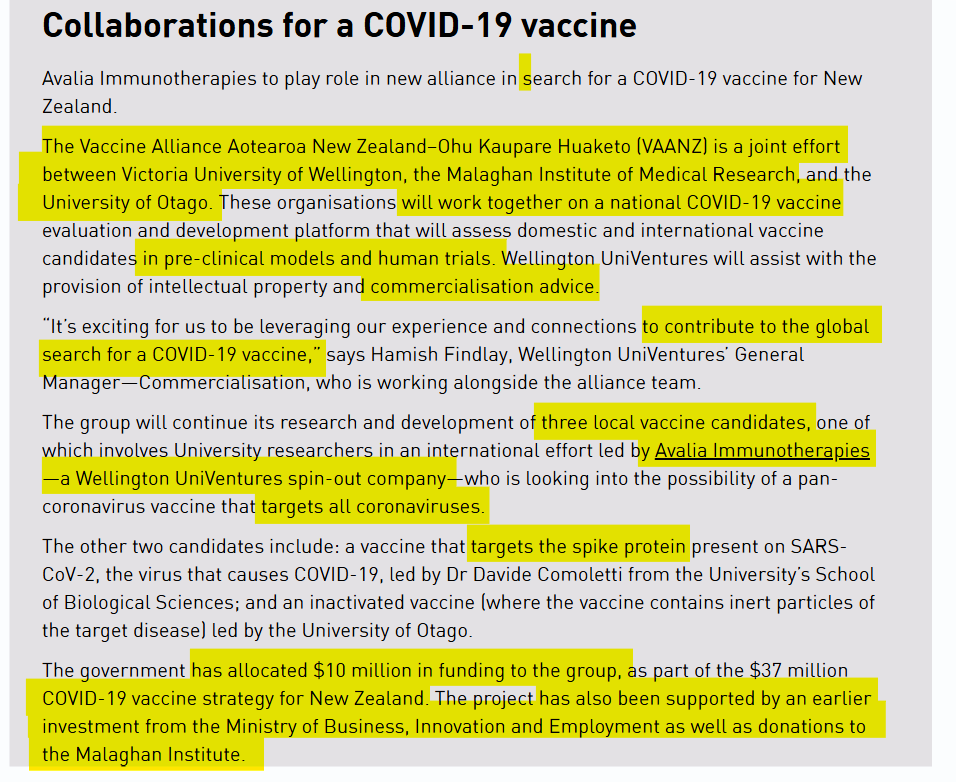
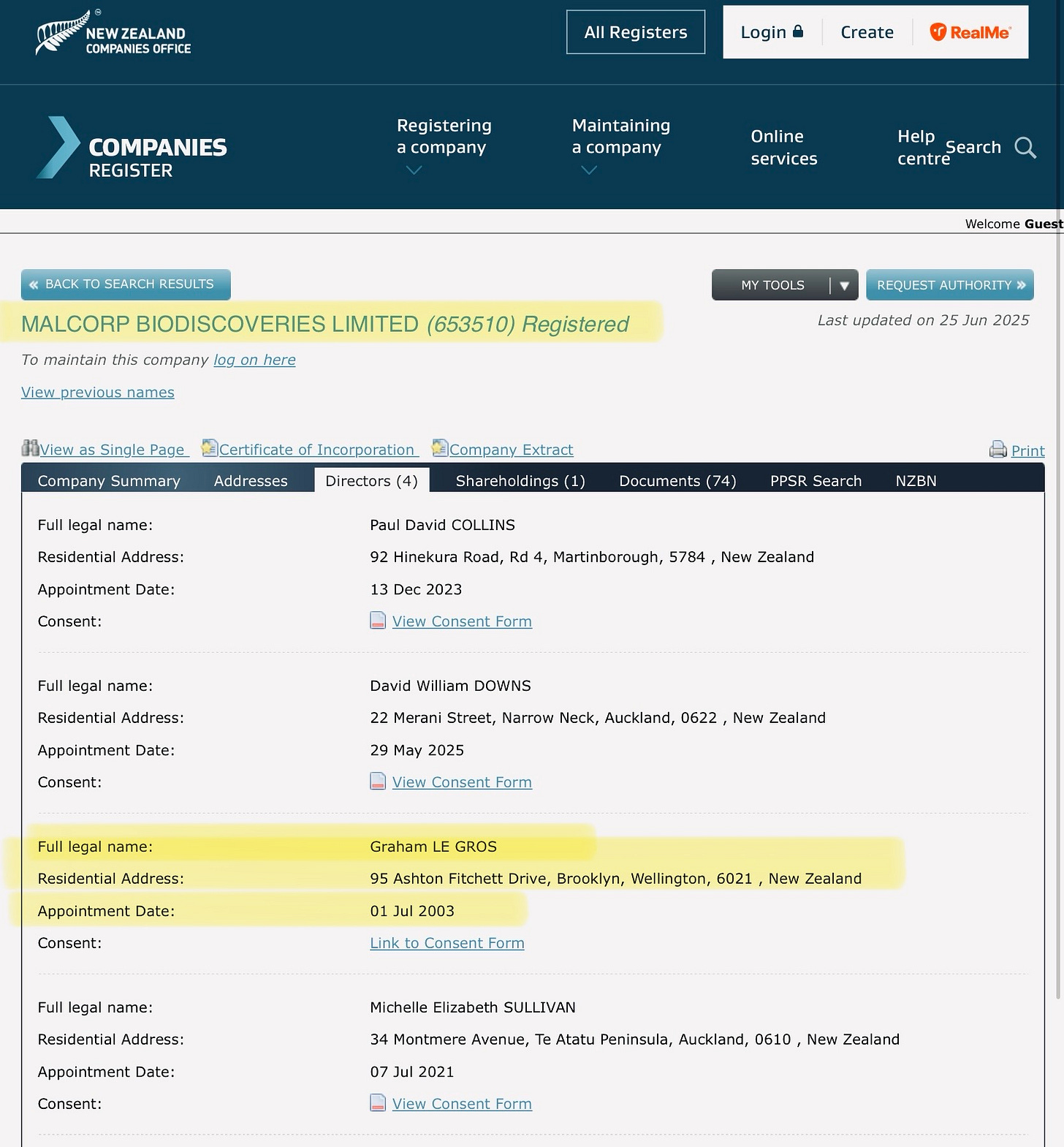
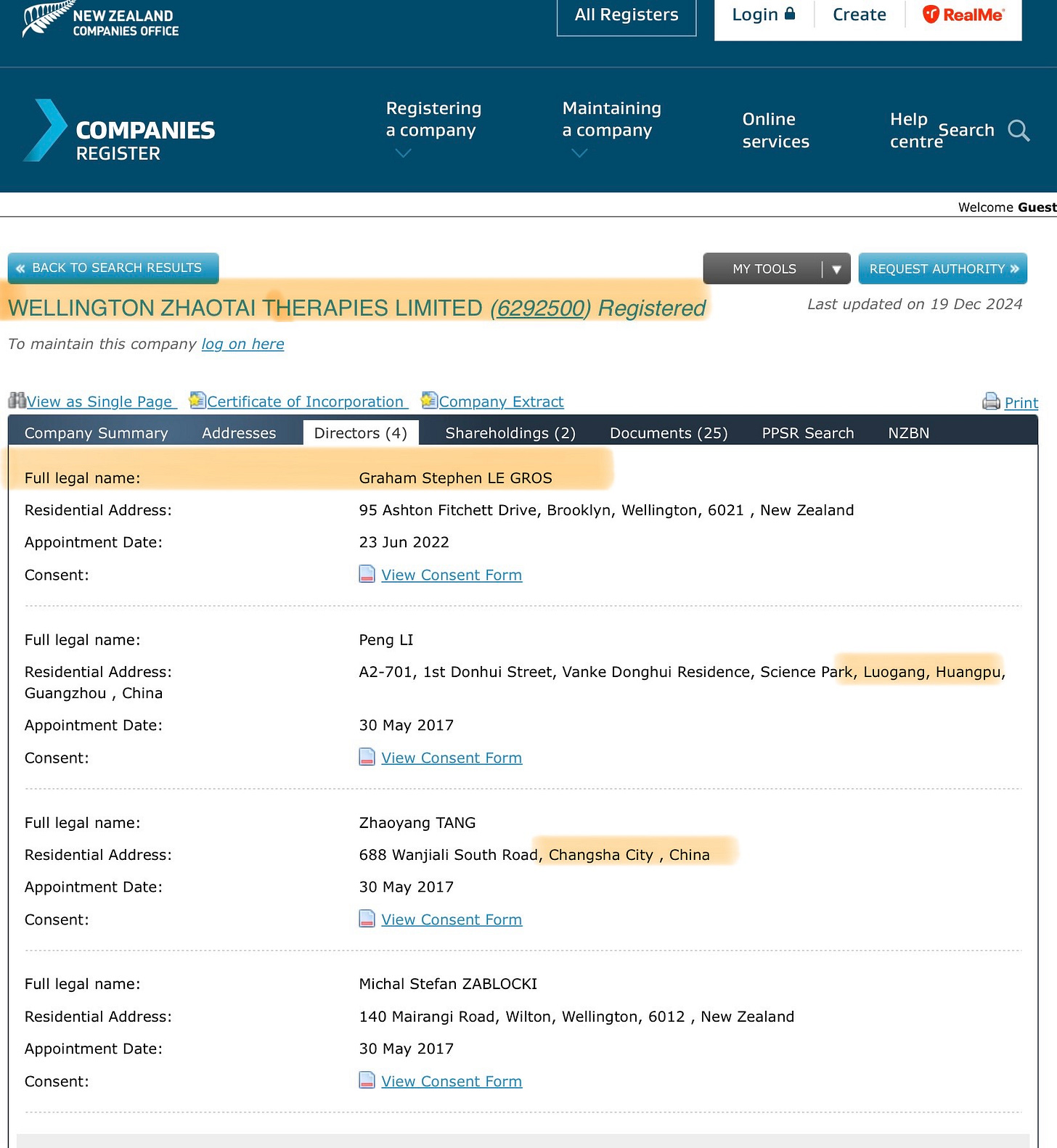



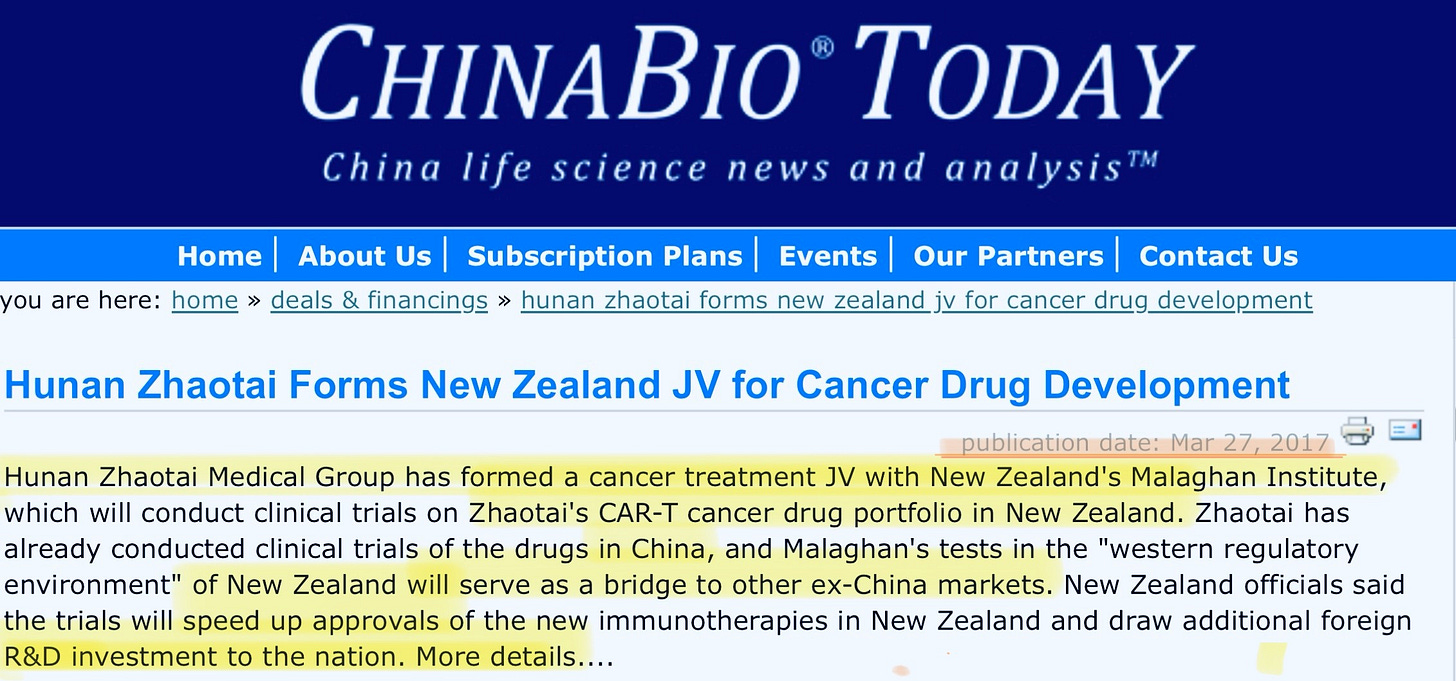

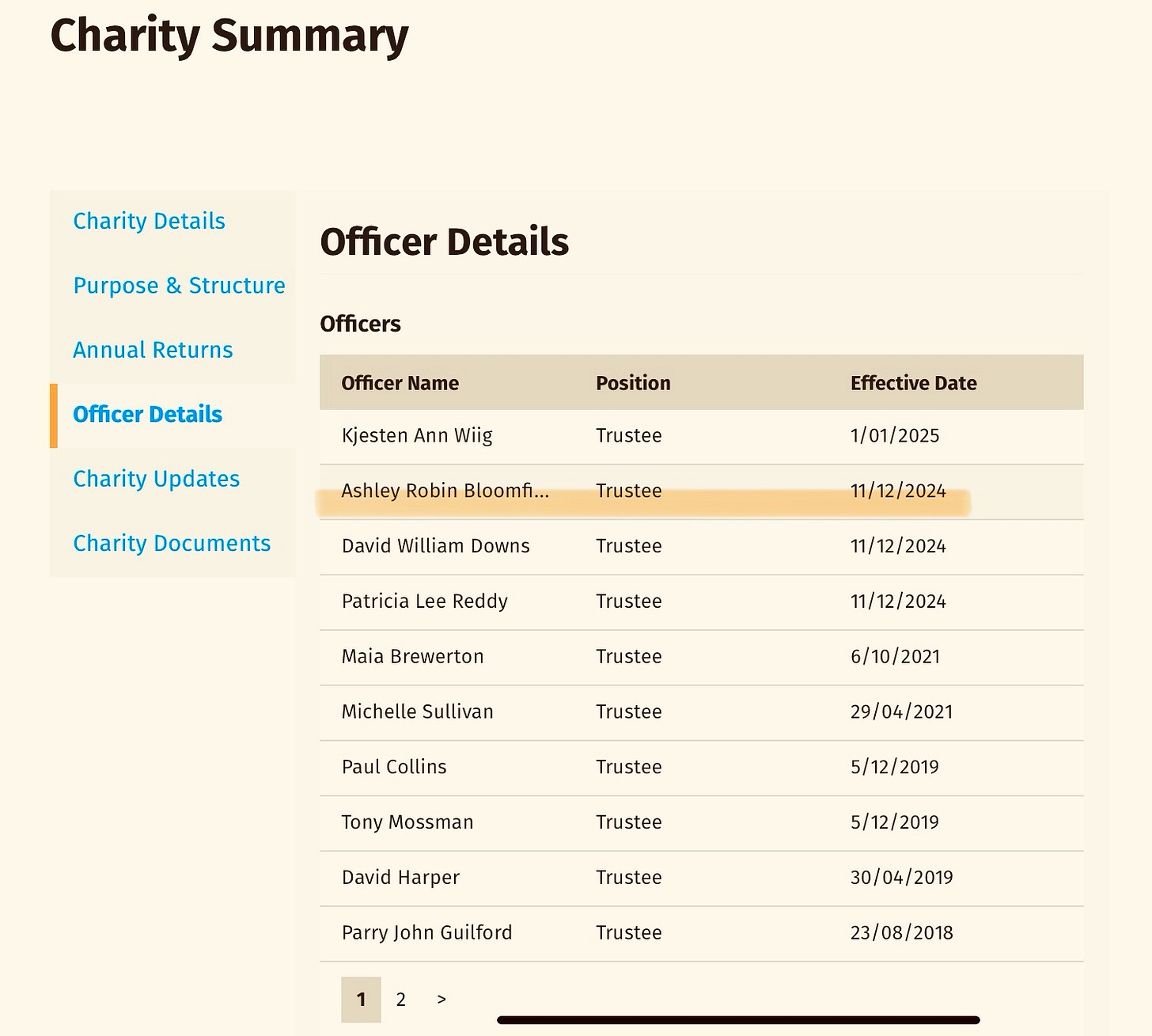



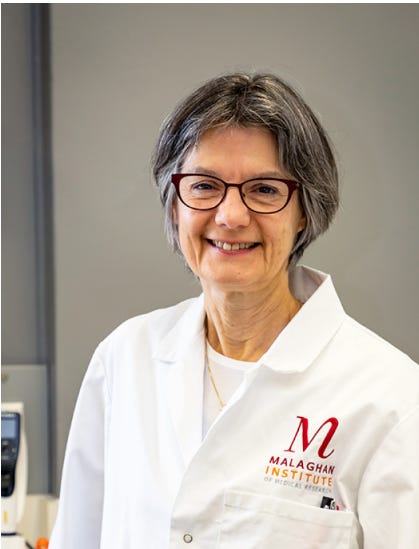

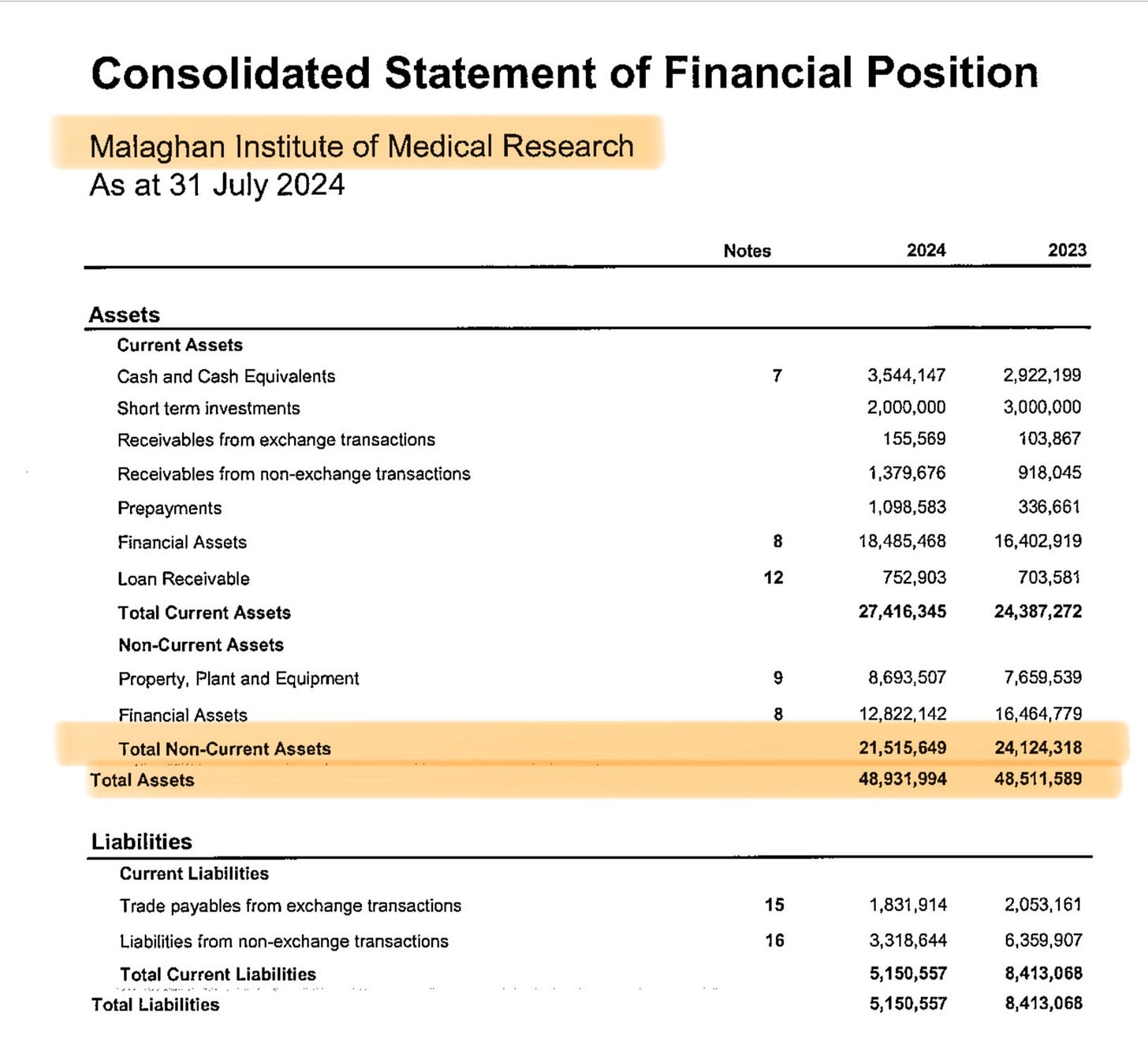
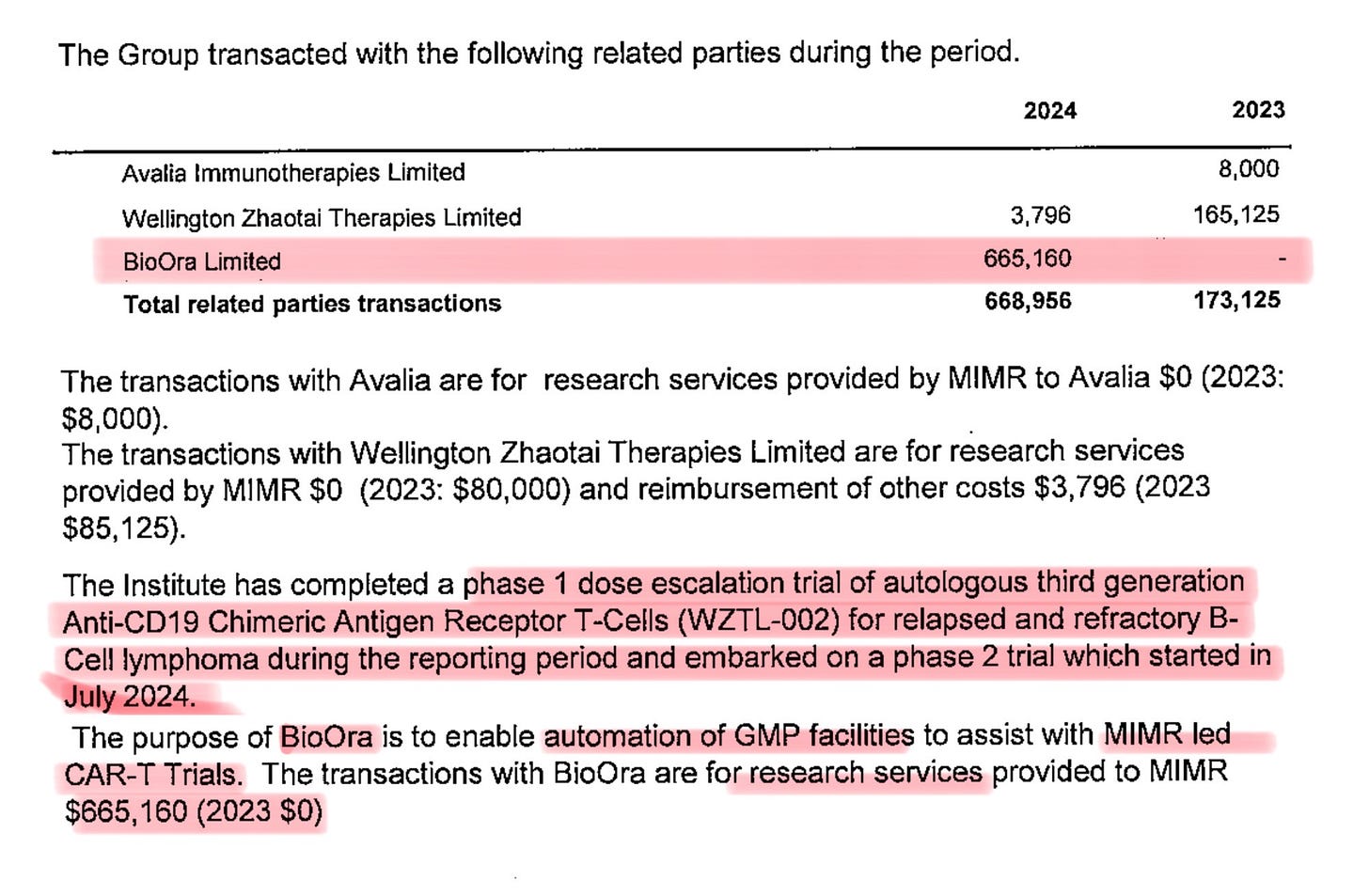

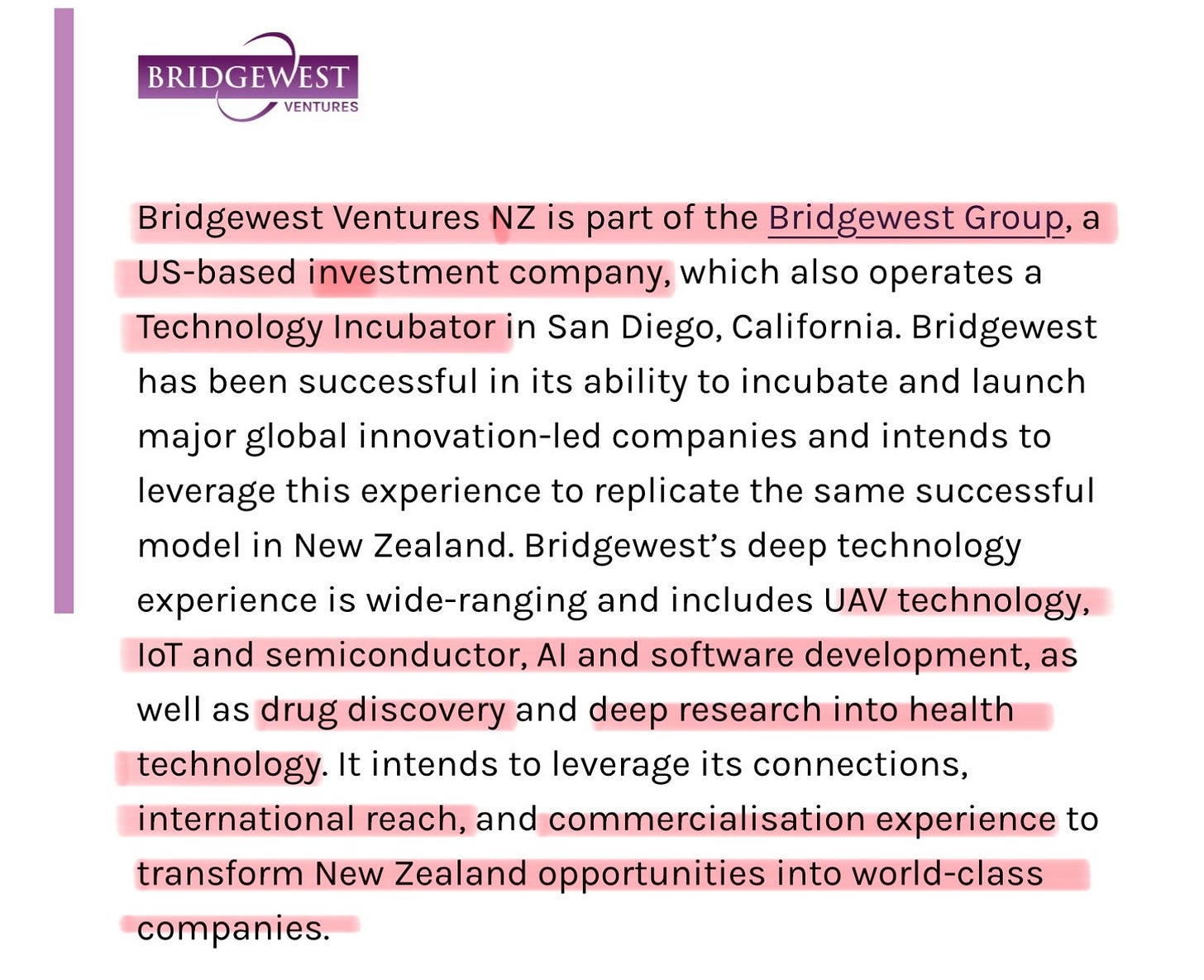

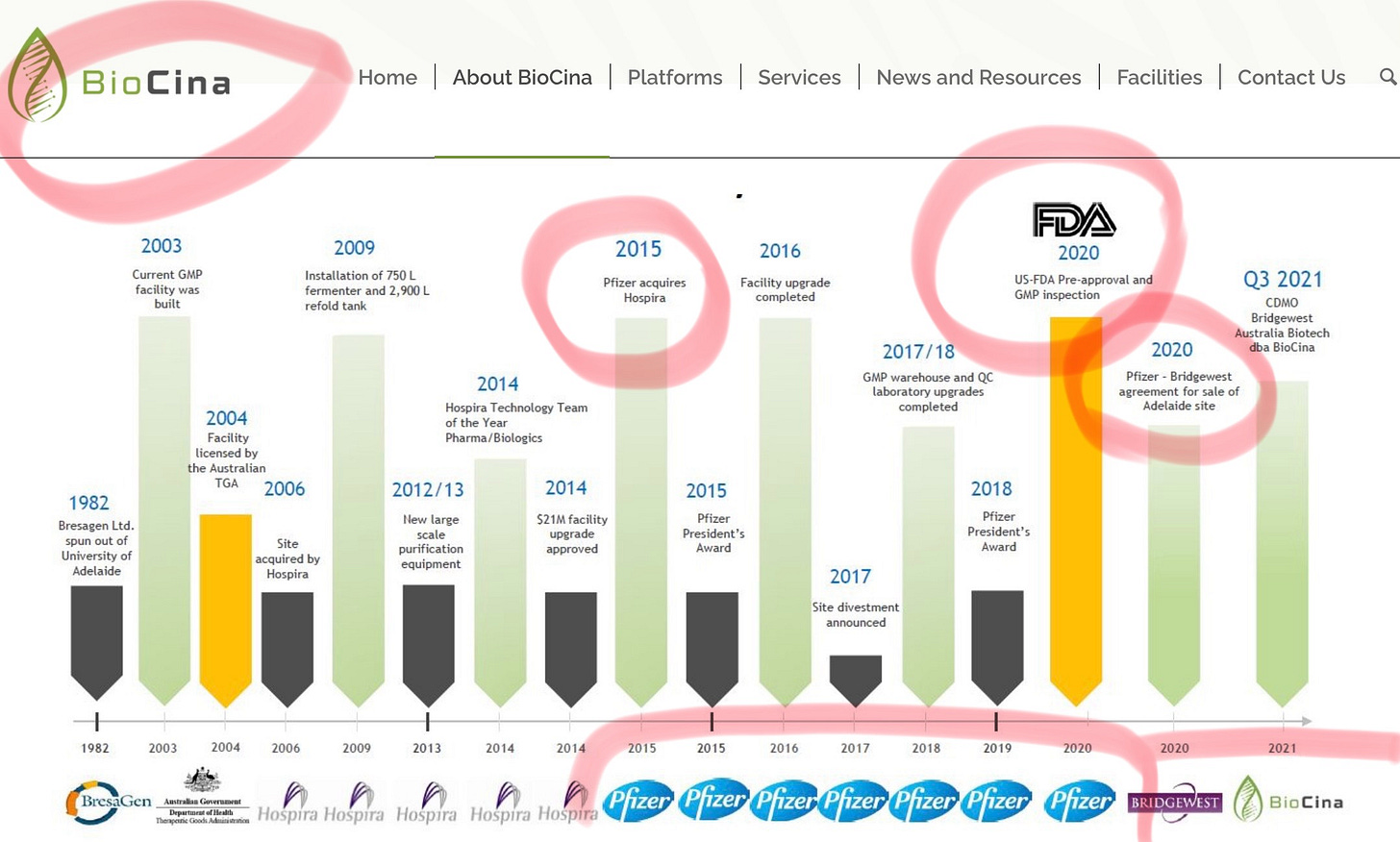

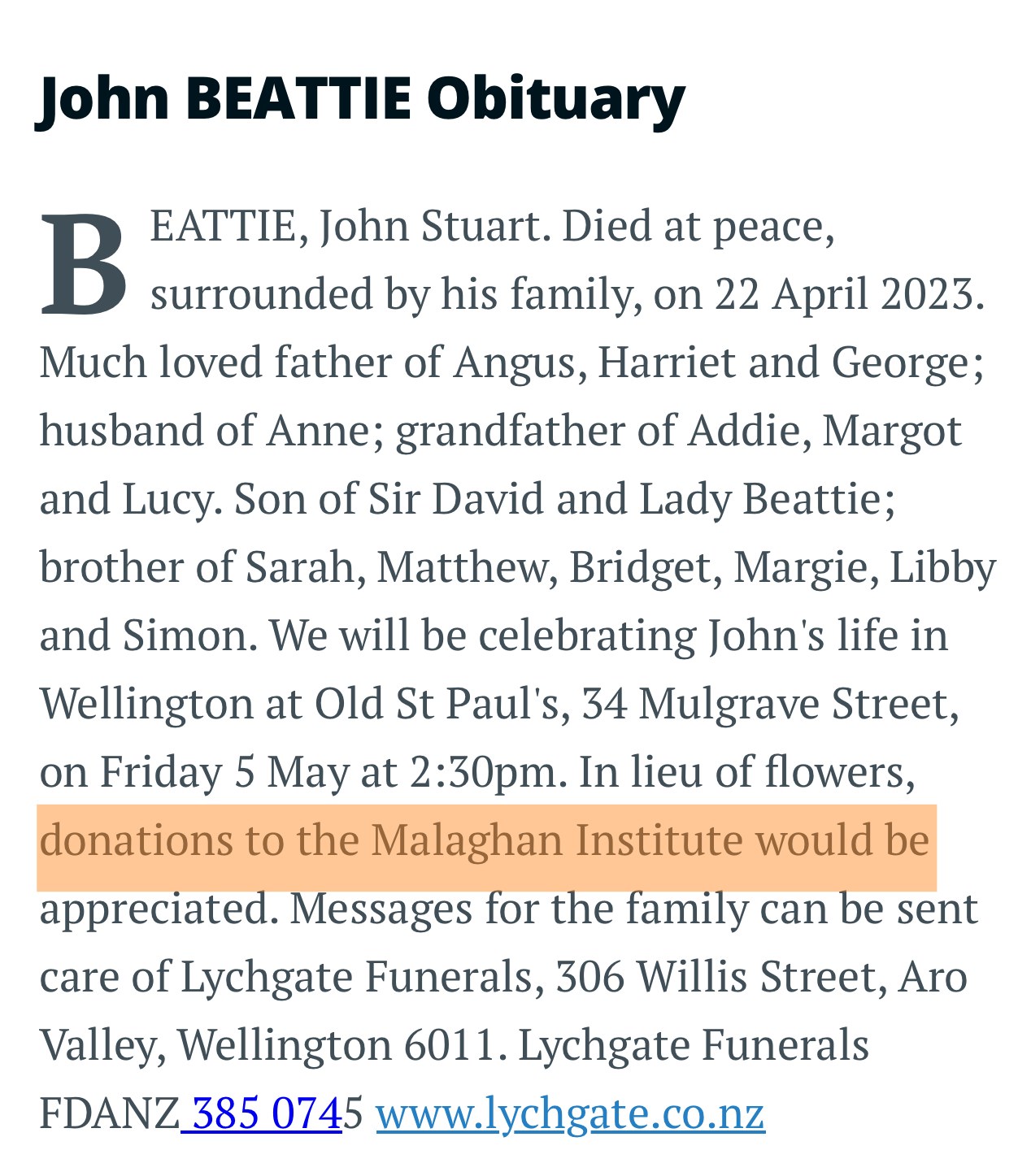

I'm glad Lynda Wharton encouraged you to do this article Ursula. I also note the former Governor General of NZ, Patricia Lee Reddy, is also on the same board as Ashley Bloomfield.
Excellent work. I have an article underway about the conduct of the week as well. A carefully choreographed event with a predetermined outcome, would be my diagnosis.